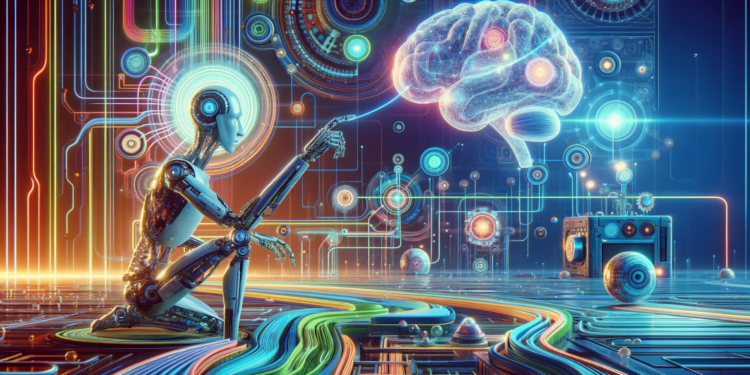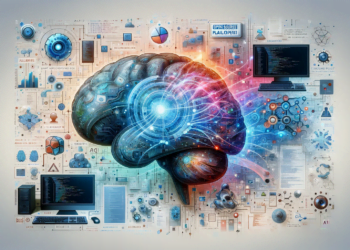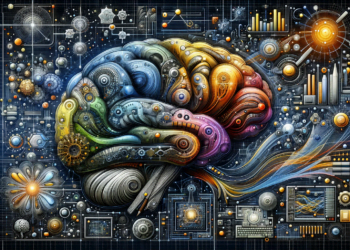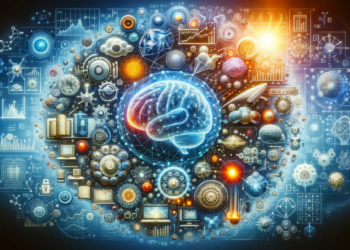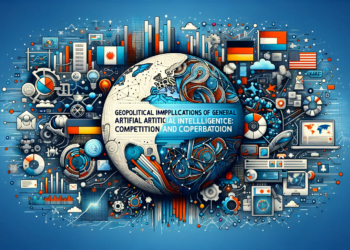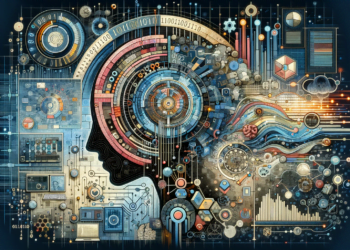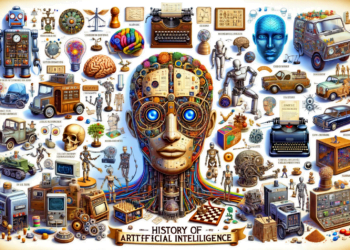General Artificial Intelligence (AGI), often referred to as “strong AI,” pertains to the theoretical type of artificial intelligence capable of learning and applying knowledge across a wide array of tasks in a manner akin to human intelligence. Unlike specialized AIs, which are designed for specific tasks (such as voice recognition or product recommendation), AGI can, in theory, perform any intellectual task that a human can. Reinforcement Learning (RL) is one of the most promising approaches to developing AGI due to its general nature and its ability to learn from interaction with the environment.
Reinforcement Learning and AGI
RL is a type of machine learning where an agent learns to perform tasks through experimentation within an environment, using feedback in the form of rewards and punishments. The idea is that the agent discovers which actions maximize the accumulated reward over time. This closely resembles the natural learning process in humans and animals, and therefore, is intuitively appealing for the development of AGI.
Tools and Frameworks for Reinforcement Learning
For researchers and developers interested in exploring RL and AGI, there are several key tools and frameworks that can help facilitate progress. Some of the most notable include:
- OpenAI Gym: A platform that provides a collection of test environments for RL algorithms, easing the benchmarking and development of algorithms.
- TensorFlow Agents (TF-Agents): A reliable and user-friendly reinforcement learning framework that works with TensorFlow.
- Ray and RLlib: Ray is a system for distributed machine learning applications, and it includes a module called RLlib, which provides scalable support for RL.
- Stable Baselines: A collection of high-quality implementations of RL algorithms based on the OpenAI Baselines project.
Best Practices in RL for Developing AGI
1. Start with Simple Environments
It’s essential to begin experiments with simple environments that allow for rapid iterations and a clear understanding of how changes to the algorithm affect the agent’s learning. The OpenAI Gym offers several low-complexity environments optimal for the early stages of development.
2. Monitoring and Visualization
Using tracking and visualization tools is crucial for understanding what the agent is learning and how rewards are being utilized. TensorBoard, which integrates with TensorFlow, offers an excellent way to visualize performance metrics and learning progress.
3. Hyperparameter Tuning
Hyperparameters in RL can have significant impacts on agent performance and learning speed. Using grid search or more advanced hyperparameter search algorithms can be crucial in finding the optimal set that works best for your specific situation.
4. Reproducibility and Version Control
Reproducibility is a considerable challenge in RL. Make sure to version not just the code but also the environments, dependencies, and hyperparameters. Tools like Docker can be useful for packaging environments and dependencies, while Git is critical for version control in code.
5. Baseline Models and Ablative Analysis
It’s important to compare your approach with baseline models to assess performance. Conducting ablative analysis, where parts of the model are removed to understand their impact on performance, can also provide significant insights.
6. Exploration vs. Exploitation
The balance between exploration (trying new things) and exploitation (using what’s already known to work) is critical in RL. Methods like epsilon-greedy, soft actor-critic, or entropy-based techniques can help manage this balance.
7. Leveraging Parallel Learning
RL can be computationally intensive. Leveraging parallel learning with tools like Ray and RLlib can significantly speed up the training process, allowing multiple agent instances to learn concurrently.
8. Using Deep Learning Techniques
Deep Reinforcement Learning combines RL with deep neural networks, enabling the agent to learn from large volumes of information and handle high-dimensional inputs. Libraries like Keras and PyTorch are great for implementing these networks.
Challenges and Ethical Considerations
Developing AGI presents distinct challenges, both technical and ethical. From a technical standpoint, the dilemma of generalization versus specialization is one of the most complex aspects—how to design systems that are flexible enough to learn any task, yet specialized enough to perform them efficiently. Ethically, creating AGI involves considerations regarding AI safety, privacy, technological unemployment, and autonomous decision-making.
It is the responsibility of developers and companies working on AGI to proactively address these issues and create systems that are transparent, fair, and comply with ethical and privacy regulations.
Collaboration and Knowledge Sharing
Given the complexity of AGI and RL, collaboration among researchers, organizing and participating in symposia and conferences, and keeping abreast of the latest developments in the field are crucial. Platforms like arXiv and sites like GitHub are excellent resources for staying up to date and sharing progress with the global community.
By following these practical tips and utilizing the right tools, developers and researchers can accelerate the development of AGI applications and solve complex problems previously exclusive to human intelligence. As this field advances, it will be essential to maintain a well-grounded perspective of current best practices and quickly adapt to emerging technologies and methodologies.

